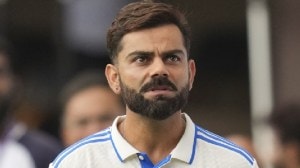How they cracked a male bastion called MEA
New Delhi, January 14: The glass ceiling broke in the Ministry of External Affairs a couple of weeks ago, allowing Chokila Iyer to step ge...

New Delhi, January 14: The glass ceiling broke in the Ministry of External Affairs a couple of weeks ago, allowing Chokila Iyer to step gently in through the slats. But as the first woman prepared to take the top job in the foreign service, stories of how her female colleagues had set the Yamuna on fire over the last 52 years — just so that Iyer could in the new year preside over the IFS with deliberate aplomb — began to curl in from all over the country.
C.B. Muthamma, 77, remains as fiery as she did the day she joined, the first woman to clear the competitive exam in 1949. Thirty years later, Muthamma moved the Supreme Court because the MEA refused to award her the rank of Secretary. The petition resulted in a ranking judgement by V.R. Krishna Iyer on “institutionalised discrimination” in the bureaucracy.
“From the time I joined in 1950, every step of the way, I have faced stiff resistance,” Muthamma told The Indian Express, “Whether it was my first posting in Paris or later, none of my ambassadors wanted me, they were afraid of being stuck with a woman officer. It was terrible. Today’s girls don’t realise how lucky they are that things have changed over the years.”
Certainly, today’s women officers, confident that they’re among the best and the brightest, will raise one eyebrow in icy dismissal if asked whether gender gets in the way. Arundhati Ghosh, in her silk saris and with complete mastery over her subject at the Conference on Disarmament in Geneva in 1996 — when India refused to sign the CTBT — was the talk of the town with her “not now, not ever” phrase.
But even as late as the 1980s — not much different from one of Muthamma’s interviewers in 1949 who kept expressing horror that she had opted for the IFS (he later told her that he had given her the minimum pass marks hoping she would fail) — one woman officer was shocked into disbelief at the similarity of her interviewer’s reaction.
“He asked me if I was going to marry a cook. When I asked him why I should do that, his airy reply was, Oh, isn’t that what spouses of officers are supposed to do as they travel the world?” the woman officer said.
It’s only over the last couple of decades, as the MEA has been forced to change with the times, that women have been moved out of “soft” postings and assigned to tough divisions. Leela Ponappa was the first to breach the Pakistan desk, followed by Lakshmi Puri, Neelam Sabharwal, Deepa Gopalan, Vijay Thakur Singh (for ten, long years) and now Ruchi Ghanshyam, all of them burning the oil wick at both ends. Ruchi was in fact the first woman officer to be posted in Islamabad — through Lahore, Kargil and the hijacking of IC-814.
Through it all, Supermom balanced Career with Babies, Nappies and Husbands — like so many other women in the real world — and fought her egalitarian wars, often hearing the refrain, “Standards have really dropped since women joined the service.”
Certainly, women have come a long way, but it’s women like Muthamma and Manorama Bhalla who’ve fought to bring them here. Manorama, in fact, forced the MEA to bend in front of love, when she wanted to marry a colleague, Hardev, soon after she joined in 1958. She was posted in Bonn, he was in Prague, but it wasn’t the distance. Service rules debarred women from continuing in the service if a woman officer wanted to marry.
The MEA held out sterling examples of other women officers in front of Manorama. Such as Rama Mehta, who had succumbed to the lure of Jagat Mehta and quit. As had Mira Sinha, about whom it was said in awe, that she was singled out by Zhou-en Lai for a dance in Beijing. (Ironically, Jagat Mehta as FS in 1979 issued a circular that said women officers should not expect “special favours.” Furious over its patronising tone, Madhu Bhaduri, ambassador in Portugal and a writer in her own right, led the fight back.)
But back to Bhalla. Then MOS in the ministry, Lakshmi Menon, sent word that Manorama should write to her for permission. It was granted, but till as late as 1979, the women had to continue handing in their resignations when they got married — which the MEA held over their heads like Damocles’ swords for five, whole years.
Things changed substantially after Rajiv Gandhi became PM and Margaret Alva his minister of state for personnel affairs. The officers remember her “sterling contribution” to the cause, changing the rules so that married couples not only got the same foreign allowance as they did when they were single, but also that as far as possible, couples would be posted together.
The next battle, to be allowed to marry foreigners without quitting, had to wait almost till the nineties. Credit for that particular war must go to Aruna Fontana, who fought long and hard to marry an Italian. Since, MEA allows cross-country weddings with the caveat that the foreign spouse adopt Indian nationality.
But even as the glass ceiling permanently cracks, one of the best stories must come from Mani Mekhalai — the first woman offered Arabic as specialised language in 1981. Posted in really tough conditions in Sudan soon after, Mani fell quite ill after a year or so and applied to return home. She was peremptorily told by the MEA, “Sorry, we don’t have a man to replace you just yet.”
Photos





- 01
- 02
- 03
- 04
- 05


























